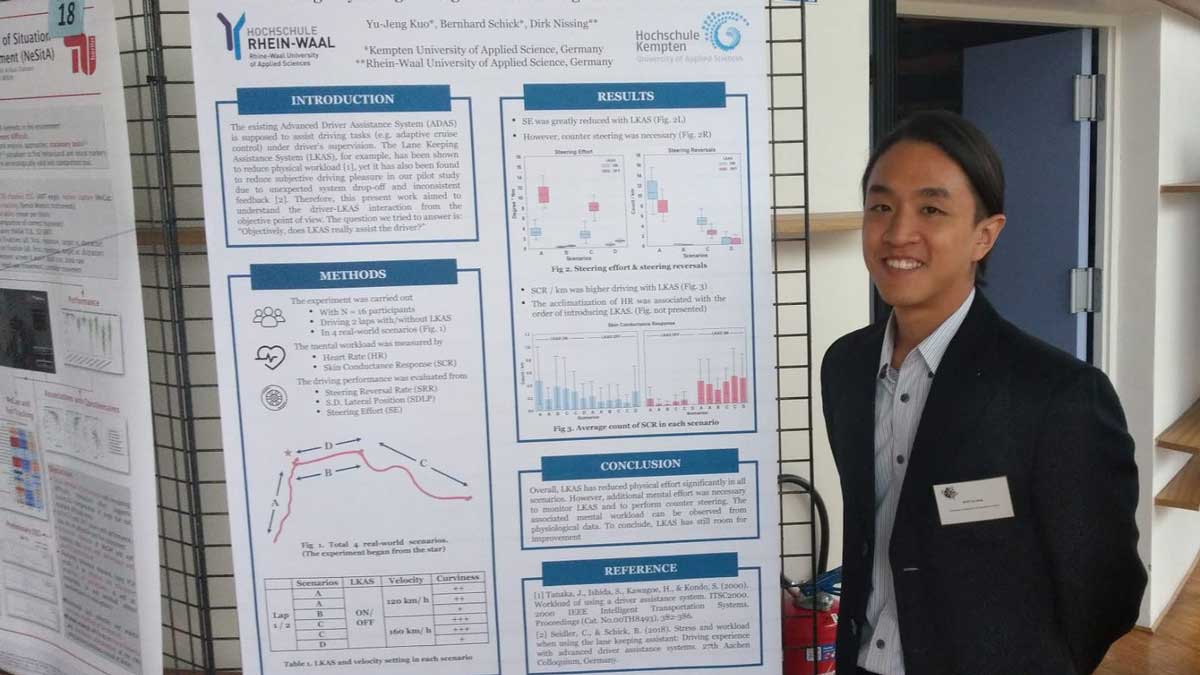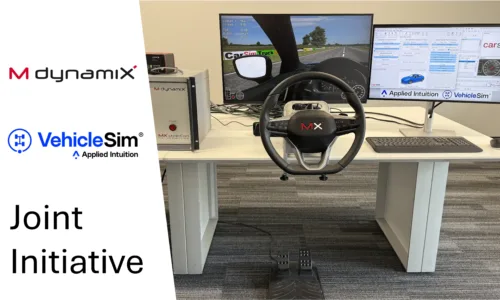Best Poster Award for Yu-Jeng Kuo at HFES Annual Meeting in Nantes

Kempten / Nantes. At the beginning of October 2019 the Human Factors and Ergonomics Society – Europe Chapter invited for the annual society meeting in Nantes, France. Under the central theme „Understanding Human Behaviour in Complex Systems“, the latest findings from the area of Human Factors and Ergonomics were presented. Yu-Jeng Kuo, research assistant at the University of Kempten, was rewarded with the Best Poster Award.
There is not a day that goes by without talking about digitalization and automation. Driving assistance systems and automated driving are probably the most omnipresent topics in the automotive industry besides electric mobility. The improvement of safety and effectiveness of the overall human-machine system is the goal, but all too often the emphasis is on in the machine. Technical innovations are posing challenges for the driver that reduce the intended added value of the assistance system.
In order to realize visions of the future, one fact is increasingly becoming the subject of research: the human. The Human Factors Society (HFES) with around 4500 members serve the needs of the human factors profession. The annual regional exchange of knowledge and methodology in the various disciplines promotes an understanding of the scientific handling of the human factor.
Yu-Jeng Kuo, research assistant of the „Human Factors“ research team (Adrive Living Lab) of Kempten University of Applied Sciences – an MX partner location – presented his work as poster at the annual meeting of the HFES Europe Chapter in Nantes, France. The poster presentation with the title „Objective Workload Evaluation with Lane Keeping Assistance System using Physiological Signal and Driving Performance“ was able to raise great interest among the audience and the jury.
In his work, Kuo used objective measurement data from test subjects, such as heartrate and skin conductance, to investigate whether driver assistance systems like the lane keeping assistance system, really relieve the driver. The physiological objective data showed that driving with the Lane Keeping Assist caused more stress for the test subjects instead of less stress as desired.
The result’s interpretation were twofold: the lane keeping assistance system has to be improved. The human factor with its emotional needs has to be given much more consideration in the rapid pace of vehicle development and placed at the centre of development – vehicle and driver in perfect harmony. The knowledge gained can be applied to the design, development and testing of lane keeping assistance systems. MdynamiX works together with the Adrive Living Lab of the University of Applied Sciences Kempten to intensively cooperate with vehicle manufacturers and suppliers.
The work and its results, as well as the clear and perfectly structured layout of the poster convinced the jury. Kuo received the Best Poster Award 2019, which has been awarded by HEFS Europe Chapter since 2009.


